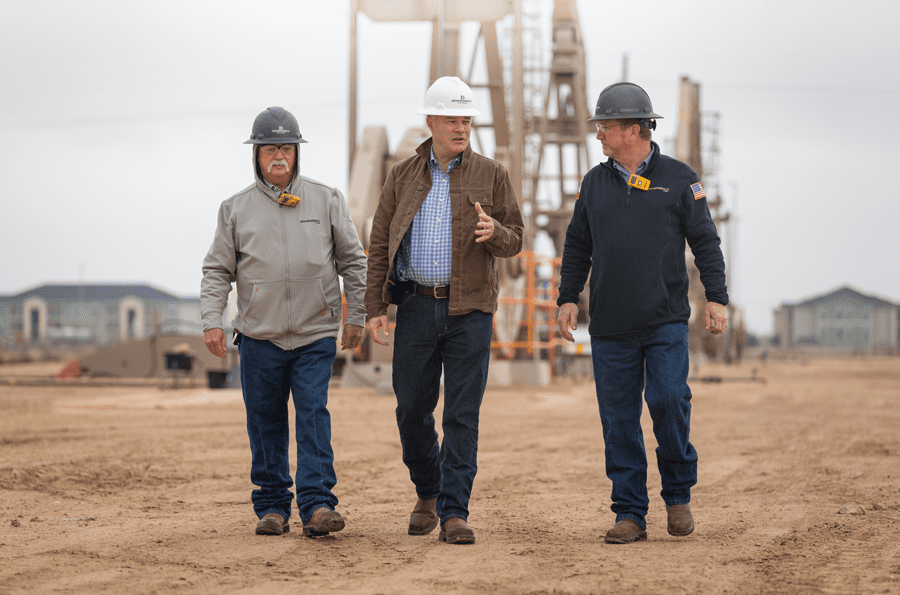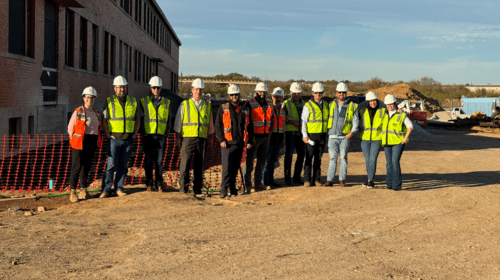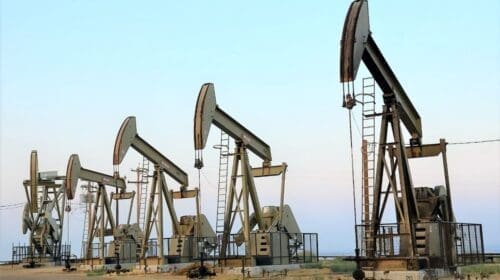Surveying the existing workforce might bring interesting inferences to light, and most candidates would likely share where they nailed down roots, although happy and content, differs drastically from the original career path they initiated. The path taken shapes skill sets, develops personalities, and defines the final outcome. Every so often, however, a career dream becomes an employment reality. An unwavering passion that resonates with drive can steer an individual to the ultimate career goal of choice.
Mike Sommers, president and CEO of the American Petroleum Institute (API), embraces his role as a success story in obtaining a career utopia with absolute love and passion for his profession that he knew one day would be his calling. As the 15th chief executive of the largest oil and gas industry trade organization, Sommers takes stock in representing the industry through advocacy action and regulation development.
“It is my greatest honor to serve the oil and gas industry,” says Sommers. “API represents oil and gas every day, and I am proud to be a part of the institution.”
Appointed in 2018, Sommers leads API through important matters critical to the success of the oil and gas industry. He initiated the process of carefully assessing the organization’s development and reestablishing its essential tasks and advocacy endeavors. Shortly after his appointment, the global energy markets were challenged with an intensity not seen before, and the political landscape shifted. Sommers drew upon his illustrious career to guide API through tumultuous times. While doing so, he bolstered confidence through the utilization of the organization’s standards and safety policies and took a straightforward approach to address the effects of climate control.
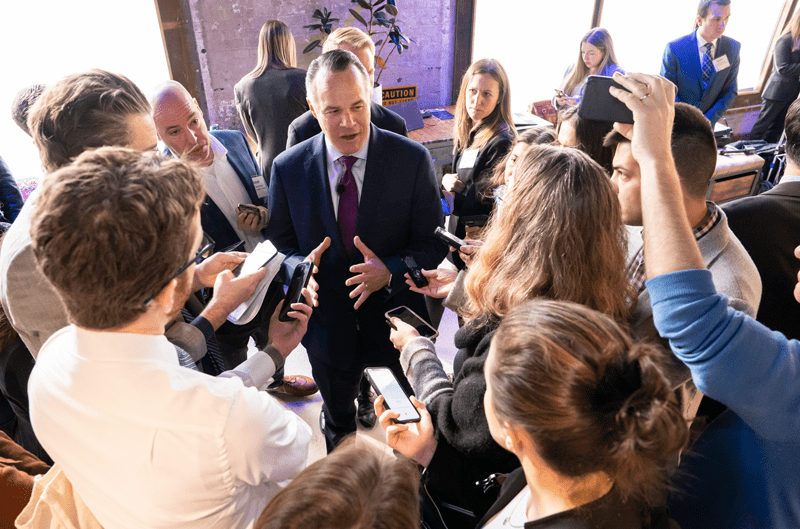
These challenges surfaced almost immediately when Sommers accepted his role. While the intensity increased, he has not sought more time to settle in and take stock. Instead, Sommers attacks the demand head-on while drawing upon a successful career that led him to API. As the president and CEO, his relationship with Washington, D.C., politics is critical in representing the men and women of oil and gas. It is only fitting that his political career, which led him to the organization, would set the crucial framework for the way in which he would represent oil and gas while navigating federal policy and global influence.
Sommers showed an interest in policy-making at an early age and later graduated from Miami University in Oxford, Ohio. His career would catapult him into politics early, where he would assume high-level positions, including the Chief of Staff for Speaker of the House, John A. Boehner, and also as President George W. Bush’s Special Assistant at the National Economic Council.
These critical roles navigating the political landscape prepared him for the order of business he would encounter when taking the reins with API. A massive organization, API employs 300 people worldwide, with eight regional offices in the United States and an additional three overseas.
“Most people see API as an advocacy group,” says Sommers. “Our work writing standards is monumental and affects the oil and gas industry worldwide.”
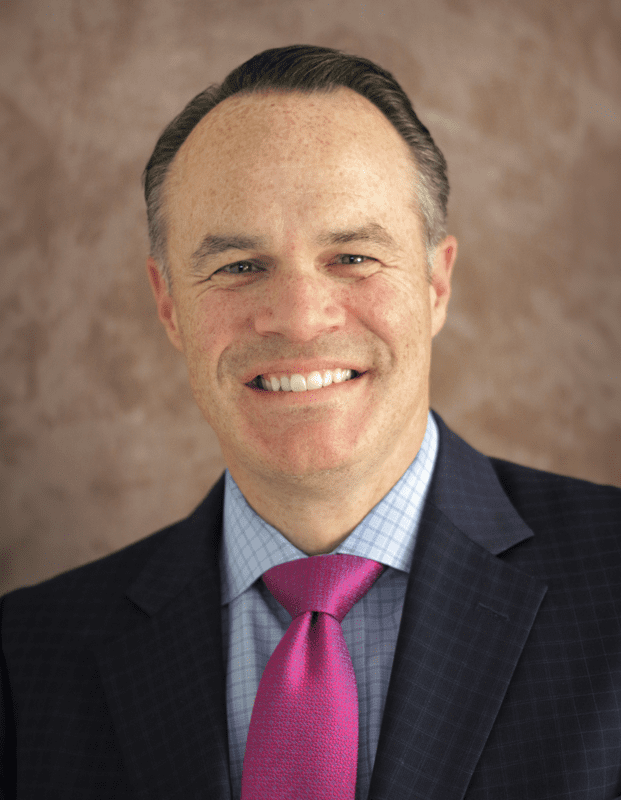
Meeting Challenges
Managing an enormous organization carries an equally vast responsibility. While rewarding, strategy and direction often collide with challenges. With the industry’s size and footprint, API must endure a painstaking endeavor to represent its members and the oil and gas industry while facing opposition from multiple sources.
Sommers says his role brings challenges just with the travel associated with meeting and communicating with API members. That face-to-face interaction proves crucial in providing the highest level of understanding and defining individual needs.
“Meeting with people is a necessity,” says Sommers. “It is critical in order to tell the story of 11 million jobs in the industry.”
While proper planning and group effort can alleviate the pressures of travel and allocating time to those who demand it, the growing opposition to an industry that is not only critical to life, but underestimated and misjudged, constructs a wall that must be continually climbed and conquered. The scrutiny waged on oil and gas has only been strengthened through divided federal and state governments.
“We try to unite opposing views, but we live in a divided climate, and it is difficult to get things done,” says Sommers.
Sommers feels that while the oil and gas industry remains a victim of partisan issues, he finds delight when success surpasses the challenge. He identified victories in permitting reform resulting from a major piece of legislation pushed and passed.
“We’re not hitting home runs,” says Sommers. “It’s the singles and doubles that win the game.”
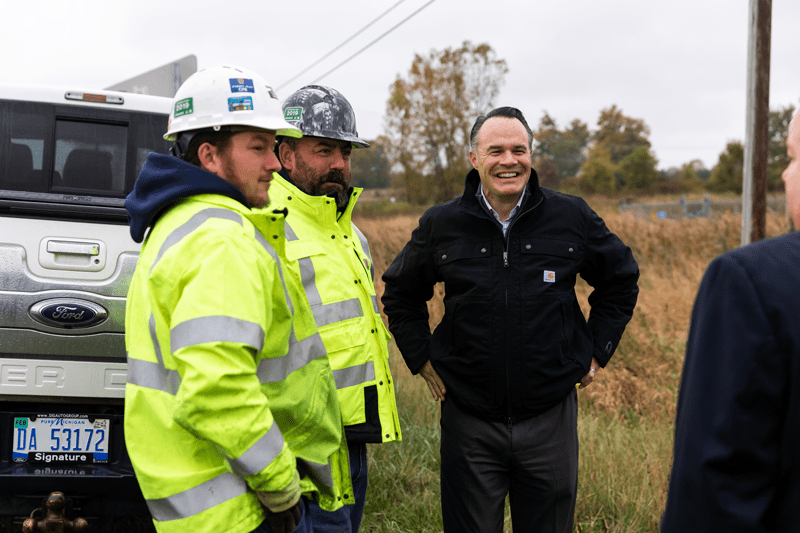
Pinpointing the Focus
Sommers points to a clear understanding of how to represent the oil and gas industry and devise a path forward. While plagued with defending oil and gas from multiple vantage points of disapproval, Sommers feels the organization’s focus must be specific in its approach. Key indicators must be considered so a stellar response produces success.
Through Sommers’ leadership, API implemented a 10-point plan to reinstate the United States as an energy leader. Each pillar represents an avenue of how energy needs can be met domestically and propel the country to energy independence. According to Sommers, the development restrictions must be lifted on federal lands and waters. These provide ample and realistic sources to meet energy needs and safeguard future interests.
Critical energy projects must be identified and made a reality. With growing demand on a global level, Sommers sees massive opportunity in meeting domestic needs, but also those across the world. Restrictions commonly blockade such practices leading Sommers to additionally cite fixing the National Environmental Policy Act (NEPA) permitting process as a focal point.
Sommers sees a growing need and demand for LNG. As a result, under his direction, API hopes to accelerate LNG exports and approve pending applications within that sector. The Gulf Coast alone offers existing potential and even more development across Texas and Louisiana as a gateway to global export possibilities.
Sommers adheres to a high level of passion that drives his interest in representing oil and gas, and LNG holds a special place in his heart. He credits American LNG as a global savior in response to the Ukrainian crisis. He almost seems awestruck when recounting Cheniere Energy’s deployment of 600 tankers loaded with LNG for Europe.

“I went to Venture Global and saw an American tanker be loaded with American LNG in preparation for travel to Dunkirk,” says Sommers. “It was like watching history repeat itself, reminding me of the assistance the United States provided in WWII.”
The oil and gas industry touts a history of innovation and is populated with great thinkers and risk takers. Modern day wildcatters can still be found, but lacking means sometimes stifles ambition and opportunity. As a result, Sommers justifies the importance of API’s call to unlock investment and access to capital. Accompanying the release of funds includes accessibility to materials and equipment needed to grow opportunity. Sommers indicates such importance is reinforced by API’s directive to dismantle supply chain bottlenecks as a component of its 10-point plan.
Sommers says responsible energy production is a significant facet of the oil and gas industry. While he believes alternative energy sources will command a piece of the energy-producing market, oil and gas will continue to be of overwhelming importance. The petroleum industry is integrated into everyday life, far exceeding its use at the gas pumps, ever to be banished from a diverse collective of energy sources. Sommers reasons that the industry must provide its energy source responsibly, complementing planetary preservation. As a result, he and API see a means of accomplishing such a feat by advancing lower carbon energy tax provisions.
“We embrace all forms of energy sourcing,” says Sommers. “We understand renewables will continue to have their place, but in the next 20 years, 50 percent of the energy supply will be from oil and gas.”
Sommers agrees with the reality of an energy transition and feels API stands ready to assist in its development. As a regulating entity, the organization can provide direction that only benefits the energy transition from all directions.
“Oil and gas standards can be retrofitted to accommodate renewables,” says Sommers. “Many of our offshore standards can be used for offshore renewables and are ready for expansion.”
Sommers sees competition as a driving force in providing energy to meet domestic and global demands. API seeks to protect competition by using refining technologies. Sommers indicates the criticality of extinguishing political overreach and allows refineries the latitude to utilize critical process procedures and technology to produce fuels for global use.
With the potential of natural gas, Sommers indicates its importance in API’s 10-point plan. Federal opposition and market stifling must refrain from blockading its use and end permitting obstructions in projects that enable safe and abundant gas production that benefits both oil and gas and the renewable sector.
The future of the planet depends on the production of energy sources. The provision of a trained and qualified workforce is a necessity for its survival. With multiple challenges facing the workforce, API identifies the importance of advancing the energy workforce of the future. The pandemic altered the workplace landscape, and new strategies must be adopted to ensure the revitalization of personnel.
While many have retired and others have left the industry, Sommers reasons the need for a creative and innovative workforce is the future of America’s stance in energy production to meet its own needs and those from a global perspective.
Sommers further indicates the necessity of Congress and the Biden administration supporting the development of a highly skilled workforce. STEM programs and educational enhancements should be increased through heightened funding to develop oil and gas opportunities and renewable possibilities.
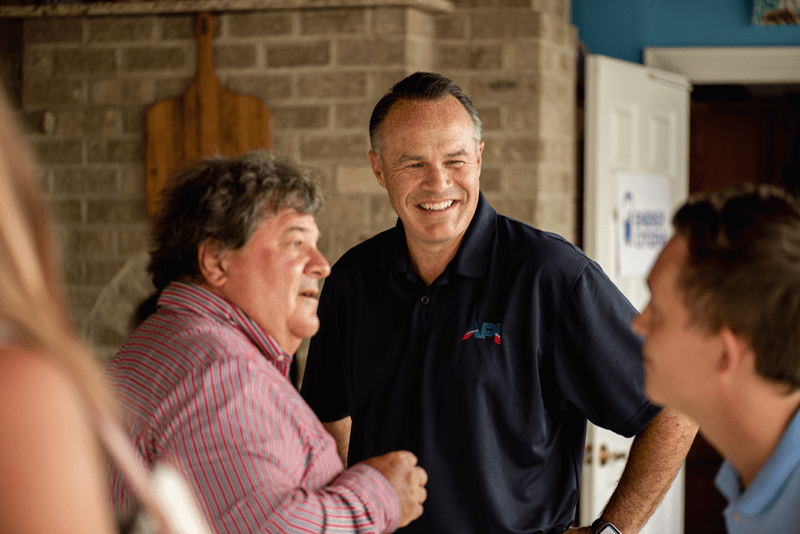
Implementing the Plan
Although Sommers draws upon the combination of his passion and past career path to guide him in his current role, he relies on the values learned through the importance of family. His father critically impacted how Sommers identifies as a person and a professional.
“Integrity is key and encompasses all other values,” says Sommers, “My father always said, ‘Integrity is your best friend.’”
While crediting his parents for establishing and developing his value system, he is just as quick to credit how he manages his role with API through the support of his wife and three children. If time ensures perfection, Sommers has benefited from a plan developed through practice and collaboration with his spouse and children.
“My family gives me great support,” says Sommers. “We have tried to learn how to balance family and career together.”
Sommers implements a head-on strategy rooted in his value system when meeting responsibility and responding to the needs of those he represents. To see the oil and gas industry further develop and fortify its role in energy supply, Sommers envisions a continued evolution of API in influencing public policy.
“API must continue its responsibility in implementing and changing policy to ensure the oil and gas industry’s advancement,” says Sommers.
Although Sommers carries the weight of API on his shoulders due to his code of personal responsibility and integrity, he implements a process that blesses him with tremendous rewards. Staying grounded in approach, Sommers finds a higher return on the investment of success when utilizing a systematic approach and focusing directly on situations, concerns and issues directly in front of him. Reserving his career ammunition for problems at hand, Sommers directs his resources accordingly instead of wasting time and resources on matters he cannot influence or that are too far out of his reach to rectify.
“The oil and gas industry includes a massive audience, and I try to focus on what is in front of me to ensure success,” says Sommers. “In my position here with API, I learn something new from the people that make up this great industry. I have such a great opportunity here.”
Headline photo: API’s Mike Sommers (C) tours Diamondback Energy with employees Rick Lewis (L) and Carey Matthews (R) in Midland, TX.
Nick Vaccaro is a freelance writer and photographer. In addition to providing technical writing services, he is an HSE consultant in the oil and gas industry with twelve years of experience. Vaccaro also contributes to SHALE Oil and Gas Business Magazine, American Oil and Gas Investor, Oil and Gas Investor, Energies Magazine and Louisiana Sportsman Magazine. He has a BA in photojournalism from Loyola University and resides in the New Orleans area. Vaccaro can be reached at 985-966-0957 or nav@vaccarogroupllc.com.
Oil and gas operations are commonly found in remote locations far from company headquarters. Now, it's possible to monitor pump operations, collate and analyze seismic data, and track employees around the world from almost anywhere. Whether employees are in the office or in the field, the internet and related applications enable a greater multidirectional flow of information – and control – than ever before.

